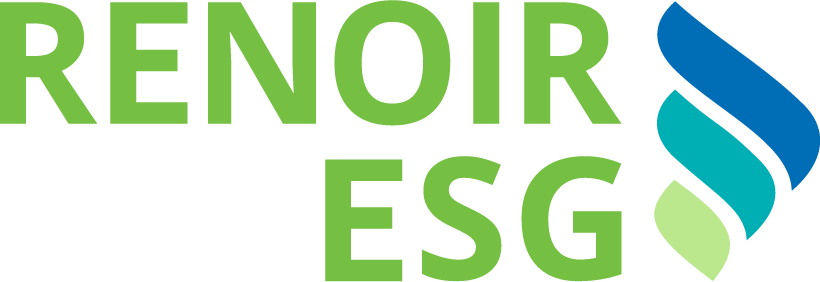UAE Sustainability Reporting Drivers & Initiatives – Note 1
UAE Sustainability Reporting Drivers & Initiatives – Note 1

These last couple of years have witnessed a rapid and consistent increase in UAE drivers and initiatives calling on the business community, starting with the listed corporations, to imbed sustainability in their business strategies, and as a result launch their sustainability/ESG reports, as well as integrate environmental, social, and governance (ESG) metrics into their business operation.
This is the first of two series of notes that will shed some light on the primary local sustainability reporting drivers and initiatives. This note will particularly tackle the initiatives made and resolution issued by the UAE Securities and Commodities Authority (SCA) regarding increased transparency and enhanced reporting (i.e. providing sustainability/ESG or integrated reports ).
The definition of the underlined terms within this note are included at the end.
The Securities and Commodities Authority (SCA), the UAE entity whose main objective is to supervise and monitor the financial markets issued, in 2019, its Master Plan for Sustainable Markets, and subsequently updated, in 2020, its Corporate Governance Guidelines for listed corporations in the UAE in its Resolution No. (3/Chairman).
The SCA’s Sustainability Master Plan
The SCA, through its Sustainability Master Plan, aims to achieve the right balance between economic and social development. Its efforts feed off the UAE’s 2030 Agenda for Sustainable Development, which in turn incorporates the United Nation’s set of 17 Sustainable Development Goals in its strategy.
One of the four key objectives of the SCA’s Sustainable Capital Markets Master Plan (objective number two) encourages corporations and their management to shift towards more effective sustainable practices.
The SCA’s Master Plan comprises of seven key pillars, of which ‘pillar number five’ is related to ‘transparency and disclosure’. Under this pillar listed corporations would be required to either issue sustainability reports (alongside their annual reports) or to integrate non-financial information (i.e. sustainability or ESG metrics) into their annual reports by issuing integrated reports . The objective is for listed corporations to include sustainability/ESG material information and report on how ESG factors are affecting their strategy and performance, as well as how these factors are being managed.
The SCA mentions several global standards for producing such reports including the Global Reporting Initiative (GRI), the Sustainability Accounting Standards Board (SASB), the International Integrated Reporting Framework (IIRF), and others.
In that same document, the SCA tackles the globally highly debated issue of whether standards should remain voluntary or become mandatory. In that regard, it mentions that voluntary guidelines may not be sufficient to make sustainability an integral part of corporation’s business strategies and culture, yet it also stresses on the importance of a gradual progression so as not to create added regulatory burdens.
Within the same sustainability reporting context, another important pillar, within the SCA’s Master Plan, is ‘pillar number four – corporate governance and stewardship’, which would relate to the SCA’s issuance of Decision no. (3/Chairman) of 2020.
Decision no. (3/Chairman)
The Securities and Commodities Authority issued Decision no. (3/Chairman) which updates (and cancels) the previous Corporate Governance Guide for listed corporations issued back in 2016 under Decision no. (7/Chairman). The new resolution was issued in February 2020 and came into effect in April 2020.
Among other amendments, the SCA has incorporated several ESG factors touching upon the independence of the board, an optional adoption of a dual governance structure, corporate social responsibility, introducing a minimum of 20% women representation on the board, and other.
For what regards reporting, the SCA calls upon listed corporations to provide an integrated report , which focuses on their business models and portrays how strategies, performance and prospects lead to the creation of value over time while adding an essential forward-looking element.
Generally, an integrated report is directed to all stakeholders (and not only to capital providers) and groups (1) the content specific to an integrated report based on the International Integrated Reporting Framework (2) economic & ESG related content, as well as (3) the corporate governance report, and finally (4) the audited financial statements.
Currently, sustainability reporting standards are implemented on a voluntary basis, yet the issuance of the updated Corporate Governance Guide, Decision no. (3/Chairman), makes integrated reporting a mandatory SCA requirement.
The next note will be discussing the initiatives that the Dubai Financial Market and the Abu Dhabi Securities Exchange have launched regarding sustainability/ESG reporting.
Brief Definitions:
Sustainability Reports – Communicate to stakeholders a corporation’s non-financial performance and measure the economic, environmental, social and governance (ESG) impact caused by their business activities. In addition, they bring to life a corporation’s sustainability journey and allow for effective management of material risks and opportunities.
Integrated Reports – focus on a corporation’s business model and its ability to generate sustainable value. The meaning of value creation within the international integrated reporting framework goes beyond only financial wealth and includes aspects such as the value of employee skills, intellectual capital, and the environment, among others. Integrated Reports communicate how an organization’s strategy, governance, performance, and prospects lead to the creation of value (in the context of its external environment).
17 Sustainable Development Goals – are a global call to action for shared prosperity, a safe environment, and an inclusive society. The 17 goals were adopted by all UN members states in 2015, as part of the 2030 Agenda for Sustainable Development, which set out a 15-year plan to achieve the goals. Governments, civil society, the private sector, and others are expected to contribute to the realisation of the global goals.










